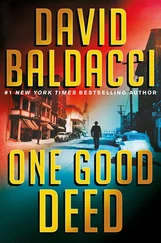Gerald nodded. “He and Julia Louise spread a rumor that Sybella had run off. They disinherited Lord William and seized Sybella’s property. Julia Louise ordered Sir Williston to destroy every piece of paper bearing Sybella’s name, but he couldn’t bring himself to erase her existence so completely. He kept the original documents. They’re tucked between the pages of his diary.”
“Not all of them,” I said.
Gerald looked at me uncomprehendingly. “I beg your pardon?”
“When we went to see Uncle Williston,” I explained, “he gave us the deed to number three, Anne Elizabeth Court. He’d hidden it in his kneehole desk. It’s in Sybella’s name.”
“Good Lord,” Gerald said weakly. “So that’s where it got to. I wondered why it wasn’t in the diary with everything else. Uncle Williston must’ve removed it shortly before he—”
“Uncle Williston knows about the diary?” I exclaimed, aghast. “Gerald—he doesn’t know about ... what’s in the crate, as well, does he?”
Gerald’s eye, which had brightened briefly, dimmed again. “Of course he does. He’s always known. That’s why he knows so much about Sir Williston.” A new note had entered Gerald’s voice, a brittle undertone. “For nearly three hundred years, the diary and Sybella’s remains have been passed from eldest son to eldest son. Grandfather gave them to Uncle Williston, and Uncle Williston passed them on to Arthur.”
“But ... that’s not right,” I said, perplexed. “They should have come to your father and you. You’re the eldest son of the Willis family.”
“My father and I were passed over.” Gerald lowered his gaze to the floor. “We’re not to the manor born, you see, not fit to be told the family’s most intimate secrets. They’d rather trust an oaf like Arthur than the son of a...” Gerald faltered.
“Tom told us that he was adopted,” I said.
“Adopted, perhaps, but never accepted,” said Gerald, his eye flashing. “Never fully accepted. It will break his heart when he learns the truth.”
Willis, Sr., pursed his lips. “You overstate the case, surely.”
“Do I?” Gerald retorted bitterly. “It must seem so to someone like you, William, who’s never had a moment’s doubt about his place in the world.”
“Has your father had such doubts?” Willis, Sr., asked.
“Don’t be taken in by his air of serenity,” said Gerald. “He once told me that the main source of his strength was the certain knowledge that his adoptive family accepted him without reservation. God knows what will happen when he discovers ...” Gerald bowed his head and fell silent.
Willis, Sr., placed a comforting hand on Gerald’s shoulder. “Fathers are, as a rule, astonishingly resilient. They have to be. Look at what their sons put them through.”
Bill’s ears reddened, but he carried on gamely. “If the diary was such a closely held secret, Gerald, how did you find out about it?”
Gerald thought for a moment before answering, “I suppose you could say that I learnt of it from Dr. Sarah Flannery—more commonly known as Sally the Slut.”
“Huh?” I said. “How did she —” I was interrupted by the distant sound of a ringing doorbell.
Willis, Sr., consulted his pocket watch once more, commenting, “Good. The train was on time.”
Mrs. Burweed opened the hallway door. Her nose was wrinkled in distaste, as though a foul odor had seeped into the hallway, and she addressed her words to Willis, Sr., not to Gerald. “The ... lady is here, sir.”
“Thank you, Mrs. Burweed,” said Willis, Sr., with a pleasant smile. “Please show her in. You will remember the rest of your instructions?”
Mrs. Burweed drew herself up and squared her shoulders. “That I will, sir.”
“Gerald,” said Willis, Sr., “I must remind you to remain silent.” He folded his hands in his lap, and his gray eyes turned to steel. “I will deal with the unsavory Dr. Flannery.”
30.
Sally the Slut was everything Anthea and Arthur had said she would be. She was short and round and she’d made the grave error of stuffing her dumpy body like a sausage into a tight black miniskirt and a brilliant red blouse of watered silk. I took one look at her shapeless legs and couldn’t help thinking of a tomato on sticks.
She was in her mid-fifties and wore her suspiciously dark brown hair in a simple pageboy style. Her nose was neither large nor unusually pointy, but she had a habit of thrusting her head forward and squinting nearsightedly that made her seem ferret-faced. Her eyes were like two tiny, reflectionless lumps of brown flint.
Swann was right, I thought. Sally must have learned some interesting party tricks in anatomy class, because she’d never make it on looks alone.
She entered the back parlor in a cloud of cloying perfume and paused just inside the doorway, obviously surprised to see so many faces turned in her direction. “Why, Gerald,” she said, giving each of us a measuring glance, “you should have told me that you’d have guests.”
“We are not guests, Dr. Flannery.” Willis, Sr.’s voice was like an icy breeze blowing through the room. “We are Gerald’s family.”
Gerald’s head turned swiftly toward Willis, Sr., and a look of startled pleasure crossed his face.
Bill coughed discreetly into his hand as Sally and her cloud of perfume passed between him and the couch. She walked with a sort of pert waddle and kept her hard eyes trained on Willis, Sr., whom she’d evidently identified as the alpha male in the room. His expression was as severe as a judge‘s, his elbows rested on the arms of his chair, and his hands were folded sternly over his immaculate waistcoat.
“I don’t recall seeing you before,” Sally said, a note of challenge in her voice.
“I am Gerald’s cousin,” Willis, Sr., informed her. “Do not delude yourself into thinking that this is a social occasion, however. Nothing could be further from the truth.”
Sally stopped short a few feet in front of Willis, Sr.’s chair.
“Gerald tells me,” Willis, Sr., continued, “that you are not a stupid woman. I assume, therefore, that you are aware of the fact that the penalties for extortion are extremely severe in this country.”
Sally poked her face forward and squinted. “And I assume that you don’t want your family’s dirty linen washed in public.”
“My family is quite capable of managing its household affairs,” Willis, Sr., said mildly. “But I can easily arrange for you to spend the next twenty to twenty-five years laundering linen, if that is what you prefer.” He pursed his lips and contemplated the ceiling. “To be frank, Dr. Flannery, it would give me so much pleasure to do so that I may arrange it without taking your personal preference into consideration.”
“Is that what you want, Gerald?” Sally folded her short arms across her bulging bosom and pivoted to face the couch. “Do you really want to destroy the firm? I’ve told you what it’ll do to your precious father.”
Willis, Sr., smiled indulgently, as though he were genuinely amused. “I would not put too much faith in your professional opinion, Dr. Flannery,” he said. “In truth, I would put no faith in it at all. Your record as a physician makes lamentable reading. I quite understand why you felt the need to ... supplement your income.”
Sally flushed. “That’s slander. There are laws against that as well in this country.”
“Are there? Oh dear.” Willis, Sr., clucked his tongue. “It seems I have made a fatal error. Perhaps we should call for an expert opinion.” He raised his voice. “Mrs. Burweed?”
Every head in the room turned to face the hall door as Mrs. Burweed returned, accompanied this time by a man of medium build with gray hair, glasses, and a small, neat mustache. He wore a navy-blue overcoat and carried a briefcase. He eyed Sally dispassionately and nodded to Willis, Sr.
Читать дальше








